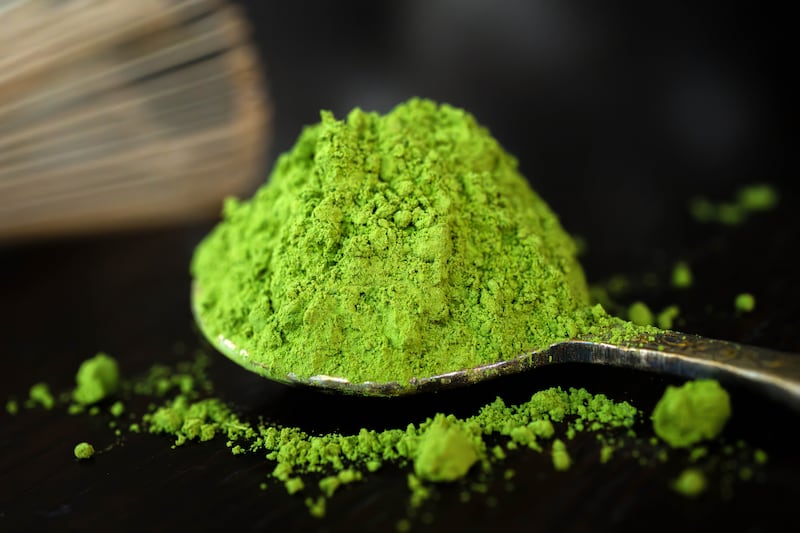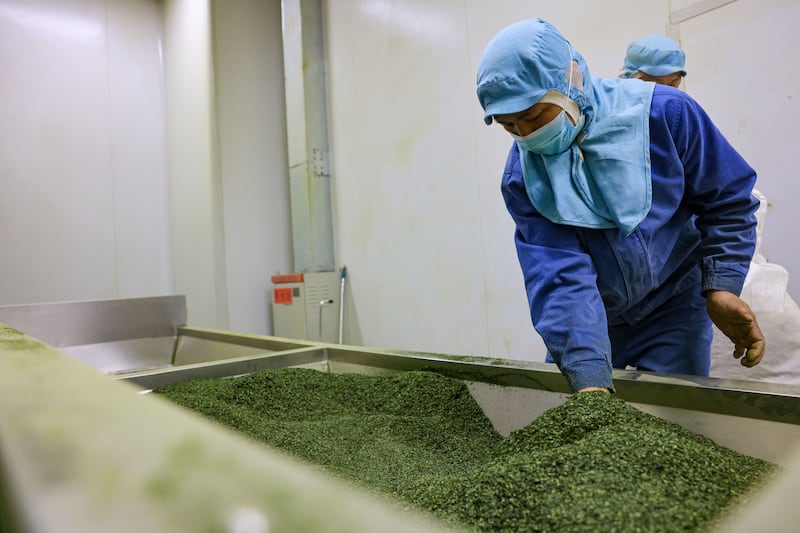You’ve seen it everywhere by now: in Blank Street’s viral Strawberry Shortcake Matcha, in Beyond Matcha toothpaste, as a staple in margaritas and even in matcha-flavored beer. Over the past two years, matcha’s mass market popularity—and cultural iconography—has grown exponentially across the Western world. The most recent industry hopping on the trend using the product as its star ingredient: skincare.
Matcha is a type of green tea that has for centuries been grown and processed mostly in Japan, Korea and China; it’s made from leaves of the Camellia sinensis plant. What differentiates matcha from other teas is that it’s largely grown in the shade before being harvested, and is then dried and turned into the fine green powder that we recognize.

There are different kinds of matcha, from ceremonial grade blends to more mass-produced products. And how the tea is produced and processed means its cost and quality can differ greatly. (Darla Murray, co-founder of the small-batch tea brand Make Matcha, told The Daily Beast she chose to focus on working directly with a tea master to source the best possible product, for example.) And in the skincare world, the importance of the caliber of matcha also remains of key importance.
The high levels of antioxidants and phytochemicals present in matcha have been linked to a range of internal health benefits: including anti-inflammatory effects, improved concentration and improved insulin sensitivity among them. From DIY masks to moisturizers and cleansers, brands and dermatologists are growing more interested in matcha. But is it safe for topical application? Here’s what to know.
What makes matcha skincare special?
According to Emily Koyama, Vice President of Marketing at KraveBeauty, a skincare brand focused on environmentally-conscious products and production, the high levels of antioxidants are what make the powder an increasingly sought-after component.
“Matcha has this high grading and soothing, potent antioxidant property,” Koyama said, explaining why KraveBeauty’s owner and founder Liah Yoo began incorporating it into products—like its Matcha Hemp Hydrating Cleanser, a favorite among customers.
Shiko Beauty, a Japanese-owned company that selects Japanese products to import to the United States, the product’s story is also particularly important, works with a number of brands using matcha in their products due to its anti-inflammatory properties.
One of the most popular products Shiko Beauty sells is the DUO Matcha Cleansing Balm, which is specifically formulated for sensitive skin, its managing editor Midori McGivern told The Daily Beast. The DUO balms are best-sellers in the Japanese beauty market today, McGivern noted, with high quality matcha infusions that remove sunscreen and makeup while moisturizing the skin.
Dr. Joshua Zeichner, a board-certified dermatologist based in New York City, said that these antioxidants can have a calming effect when applied on the skin, but added that more research and data is needed to fully understand the long-term effects in products that are quickly washed off. (With cleansers, for example, he recommends letting a product sit on the skin and then lather for approximately 30 seconds before washing it off.)

Because of these soothing properties, products like matcha can feel particularly nice for those with conditions like eczema or rosacea, though they should not be considered primary treatment options. And Zeichner said he sees antioxidants as “insurance” to consider when applying sunscreen, because while they can’t necessarily prevent damage, they can help calm the skin after any free radical damage from sun exposure, and reduce redness.
Matcha’s properties make it a beauty and health gem for both the inside and outside. And while using matcha on your skin has not been clinically tested, whether you’re drinking it or applying it topically, the centuries-old tea is certain to provide a refreshing addition to your routine. And while nothing will instantaneously give you glowing skin, its antioxidant properties could definitely help you get there.
The post The Key to Glowing Skin? It Might Just Be Matcha appeared first on The Daily Beast.




